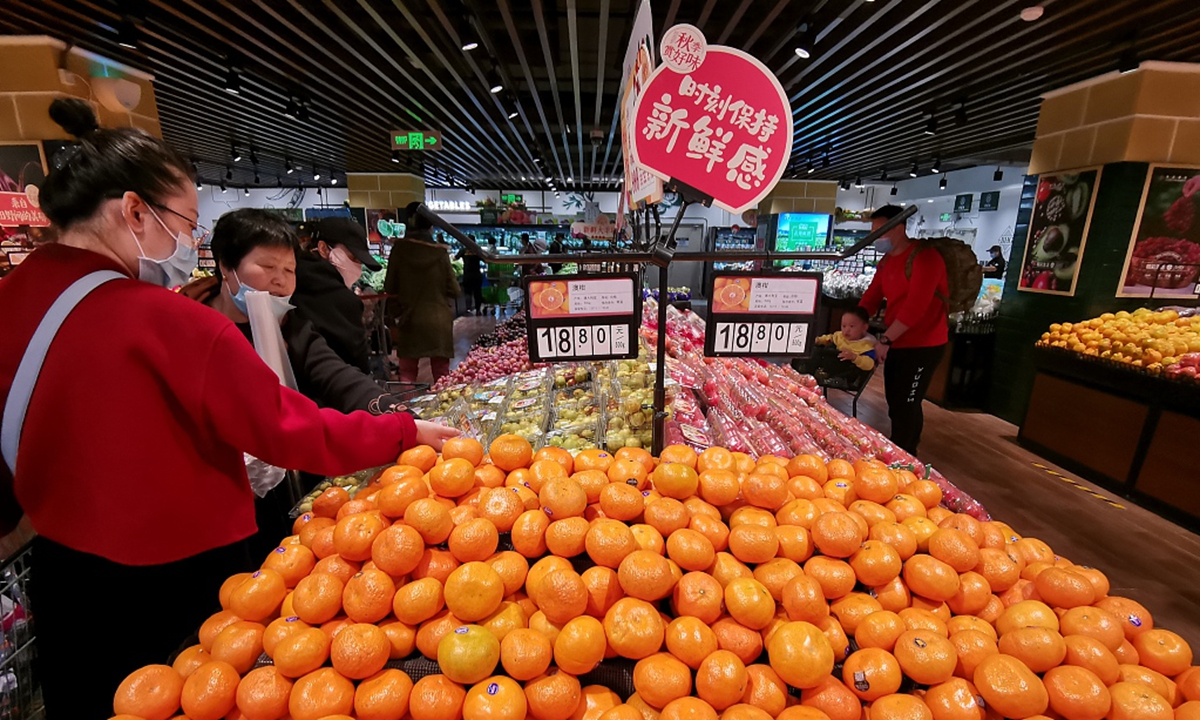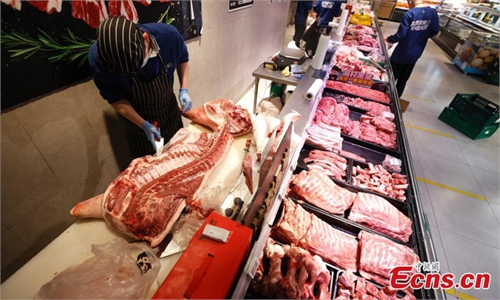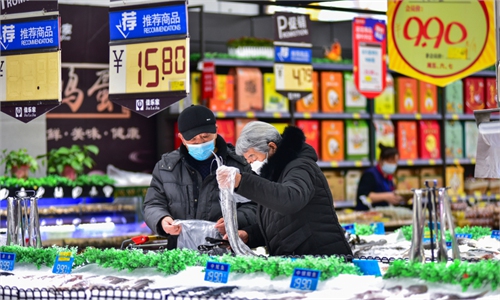
CPI Photo: VCG
China's consumer price index (CPI), a main gauge of inflation, rose slightly in February due to a high base last year and sufficient market supply after the Spring Festival holidays in January.
With the nation's economic recovery already on track, domestic demand is being unleashed, driving up prices in the commodity and services sectors, so the CPI is likely to rise modestly this year, with February likely having been the lowest point, experts said.
CPI went up 1.0 percent on a yearly basis in February, which is lower than market estimates, data from the National Bureau of Statistics (NBS) revealed on Thursday.
Food prices fell 2.0 percent in February, after a rise of 2.8 percent in January.
In month-on-month terms, the CPI decreased by 0.5 percent compared with January.
Food prices reversed the 2.8 percent increase in January to fall 2.0 percent month-on-month, lowering the February CPI by about 0.38 percentage points.
Prices of most fresh food edged down due to falling demand after the Spring Festival holidays and sufficient market supplies as the weather got warmer, said Dong Lijuan, a statistician with the NBS.
Pork, a staple meat in China, saw prices fall by 11.4 percent in February while prices of fresh vegetables were down by 4.4 percent, accounting for more than 50 percent of the total CPI decline.
Among non-food items, prices of most services showed a seasonal decline after the festival, with airfares down 12 percent and other tourism costs declining 6.5 percent.
Zhou Maohua, an economist at Everbright Bank, told the Global Times on Thursday that the full-year CPI is expected to show mild growth.
"Domestic consumption and demand are in the early recovery phase following the optimized COVID management measures introduced at the end of last year. On the supply side, a bumper farm harvest and improving pork supply this year will help curb the CPI rise."
With the economic rebound in place, China's core CPI, which excludes volatile food prices, is expected to return to the range of above 1 percent year-on-year in the coming months, and the prices of services and housing will rise in the coming months.
The CPI is unlikely to exceed the 3 percent target this year, according to Wen Bin, chief economist with China Minsheng Bank.
The mild increase in February will leave more room for macro policy maneuvering, Zhou added.
People's Bank of China Governor Yi Gang said last week that China's inflation will remain under control this year.
"From a short-term perspective, inflationary pressures are generally controllable, because China's economy is in the early stage of recovering and the lack of effective demand remains the main problem," he said.
"In the longer term, there are still many unpredictable factors in the external environment. We must establish a bottom-line mindset and remain vigilant against inflation," said the governor.
Thursday's data also showed that China's producer price index, which measures costs for materials at the factory gate, slid 1.4 percent year-on-year in February due to the high base last year.


